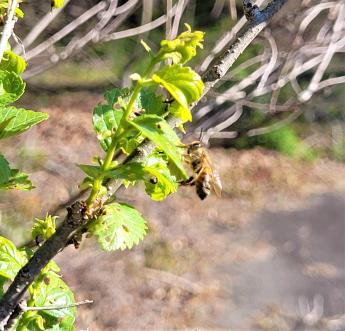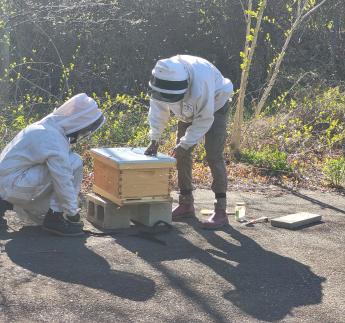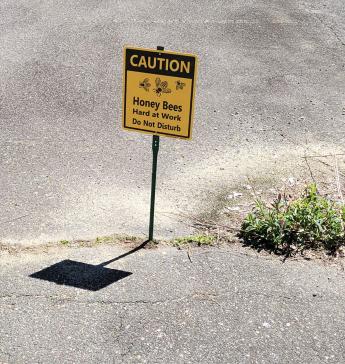Saving the pollinators one beehive at a time

The honeybee. This flying insect, while only just the size of a quarter, has a massive impact on not only our ecosystem but our food supply as well.
Pollinators, most often honeybees, are critical to agriculture and food production, contributing to the national economy by more than $20 billion each year.
Without honeybees the produce that we expect to see in our grocery stores would decrease by more than half.
Unfortunately, honeybees and other pollinators have seen a drastic decline in population nationwide.
Because of this, federal agencies, including the U.S. General Services Administration (GSA), have fully committed to promoting pollinator health, reversing pollinator decline, and providing citizen education and engagement on the subject.
The National Archives at Boston in Waltham, Massachusetts will soon be the first location in Region One to receive two beehives as part of a nationwide pilot program to save the small insects.
Under the Presidential Memorandum, Creating a Federal Strategy to Promote the Health of Honey Bees and Other Pollinators, an inter-agency Pollinator Health Task Force was established to develop a national strategy to promote the health of bees, butterflies, other pollinating insects, and birds and bats.
As part of that task force, GSA’s Pollinator Protection Initiative seeks to protect pollinators and enhance their habitat nationwide.

The objective is to promote the overall lifecycle of pollinators at Federal facilities - improved foraging, reproduction, shelter, and hibernation - while removing barriers that may block an agency’s ability to create and maintain quality habitats.
This program, managed by GSA and overseen by the Center for Urban Development, will allow for the placement of honeybee hives at various GSA leased or owned locations throughout the country.

The contractor, Best Bees, will manage the beehives placed on the 11-plus acre site in Waltham for a period of about one year and will provide an analysis of the honey produced. The analysis will help identify the plants and landscapes that are specifically helpful to the local target pollinators.
The program will not only be a great benefit to the honeybee population but will offer the local community a chance to visit and learn about these important pollinators. Additionally, pollinator gardens can serve as community spaces in urban areas, thereby allowing the federal government to provide public amenities and have a positive impact to local communities.
This project seeks to close the gap that exists between these Federal directives, academic knowledge, current facility and landscape design and management standards, thereby enabling the GSA to lead by example and to create a more efficient and effective design policy that can be modeled by other Federal agency partners, major and minor builders and managers throughout the nation.
If the program is deemed a success after the first year, GSA hopes to expand the placement locations to some of our courthouse and federal building green roofs.

 U.S. General Services Administration
U.S. General Services Administration